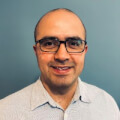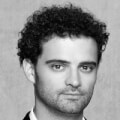Optimizing downstream purification of high-quality plasmid DNA for gene therapy and vaccine production

The rapid increase of the gene therapy pipeline and genetic vaccination for various infectious diseases, requires the large-scale production of high-quality plasmid DNA (pDNA). In gene therapy applications, pDNA is a starting material for cell transfection functioning as a template in the in-vivo transcription reaction. However, producing sufficient quantities of pure pDNA can be challenging. Hence, there is an immediate need to establish robust manufacturing processes to produce large quantities of pDNA. Low binding capacity, RNA removal, and separation of pDNA isoforms remains a challenge in pDNA purification when using anion exchange (AEX) and hydrophobic interaction (HIC) chromatography.
In this webinar we will discuss the optimization of a capture step in the purification process of a 5.3 kbp pDNA using Thermo Scientific™ POROS™ AEX resins. A Design of Experiments (DoE) approach using miniaturized columns was used to determine the optimal conditions for 3 different chromatography media. Additional studies with 1 mL columns showed a high dynamic binding capacity including up to 15 g/L for POROS™ D resin. The performance of the optimized conditions, including purity and recovery, was confirmed using a scaled-down model. The advantages of POROS™ resins in terms of pDNA binding capacity and impurity removal will be discussed to illustrate the capabilities of these chromatography media to facilitate the development and implementation of a scalable and flexible process.
- Considerations for pDNA purification and advantages of using POROS resins
- How to prepare and implement a DoE approach to identify optimal conditions for various chromatography media
- How to optimize recovery and impurity removal in the pDNA capture step
- How to achieve a scalable and flexible pDNA purification process
You might also like

Optimizing plasmid DNA purification: strategies for reliable and expandable processes

Implementation of an improved platform for downstream processing of plasmid DNA

Precision in production: optimizing monitoring and quality control for high-value plasmids

Manufacturing Quality Control for Plasmid DNA Critical Starting Materials



